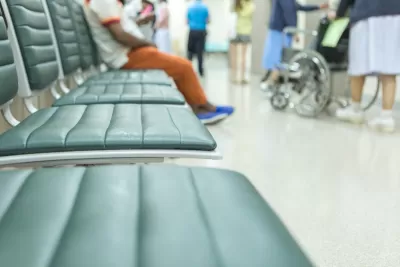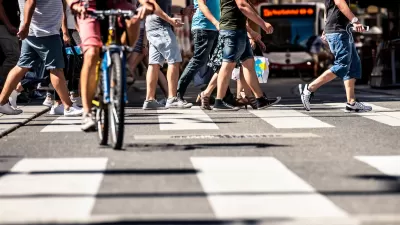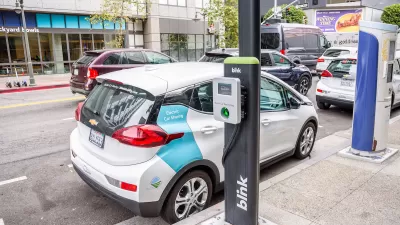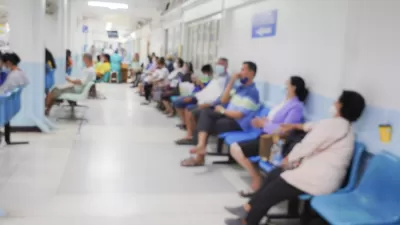Millions of Americans miss medical care and other important day-to-day appointments due to a lack of access to reliable transportation.

Almost 6 percent of Americans were unable to reach medical appointments or other important activities due to a lack of reliable transportation in the last 12 months, reveals new research from the Centers for Disease Control and Prevention’s National Center for Health Statistics.
Steven Ross Johnson outlines the results in U.S. News & World Report, noting that “Overall, the data indicates between 13 million and 14 million adults in the U.S. had recently faced the issue in 2022, according to a CDC spokesperson.” Among people living below the federal poverty line, the rate increased to 16 percent.
Lack of access to transportation can impact people’s health over the short and long term. James Hardy of the Robert Wood Johnson Foundation, told U.S. News & World Report, “At its core, lack of reliable transportation creates a barrier for folks to get to the basic needs and services that families require in order to be healthy.”
For Hardy, this stems in part from the car-centric development that dominates most U.S. communities, limiting mobility for people who don’t own cars or can’t drive. Hardy notes that “narrowing health disparities tied to a lack of transportation will only come with more substantive changes to how government officials plan and invest in transportation.”
FULL STORY: Millions of Americans Lack Reliable Transportation. It May Affect Their Health.

Planetizen Federal Action Tracker
A weekly monitor of how Trump’s orders and actions are impacting planners and planning in America.

Congressman Proposes Bill to Rename DC Metro “Trump Train”
The Make Autorail Great Again Act would withhold federal funding to the system until the Washington Metropolitan Area Transit Authority (WMATA), rebrands as the Washington Metropolitan Authority for Greater Access (WMAGA).

The Simple Legislative Tool Transforming Vacant Downtowns
In California, Michigan and Georgia, an easy win is bringing dollars — and delight — back to city centers.

The States Losing Rural Delivery Rooms at an Alarming Pace
In some states, as few as 9% of rural hospitals still deliver babies. As a result, rising pre-term births, no adequate pre-term care and harrowing close calls are a growing reality.

The Small South Asian Republic Going all in on EVs
Thanks to one simple policy change less than five years ago, 65% of new cars in this Himalayan country are now electric.

DC Backpedals on Bike Lane Protection, Swaps Barriers for Paint
Citing aesthetic concerns, the city is removing the concrete barriers and flexposts that once separated Arizona Avenue cyclists from motor vehicles.
Urban Design for Planners 1: Software Tools
This six-course series explores essential urban design concepts using open source software and equips planners with the tools they need to participate fully in the urban design process.
Planning for Universal Design
Learn the tools for implementing Universal Design in planning regulations.
Smith Gee Studio
City of Charlotte
City of Camden Redevelopment Agency
City of Astoria
Transportation Research & Education Center (TREC) at Portland State University
US High Speed Rail Association
City of Camden Redevelopment Agency
Municipality of Princeton (NJ)





























